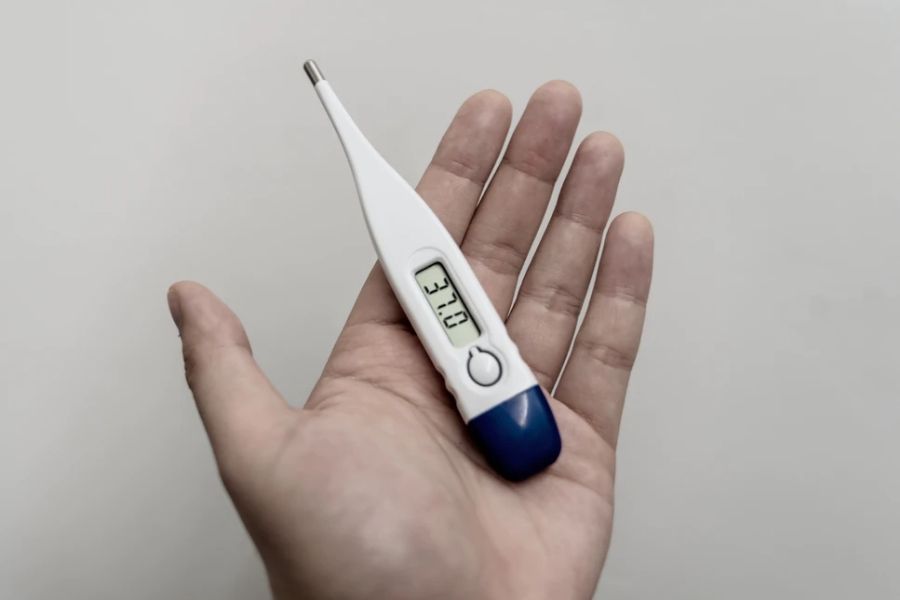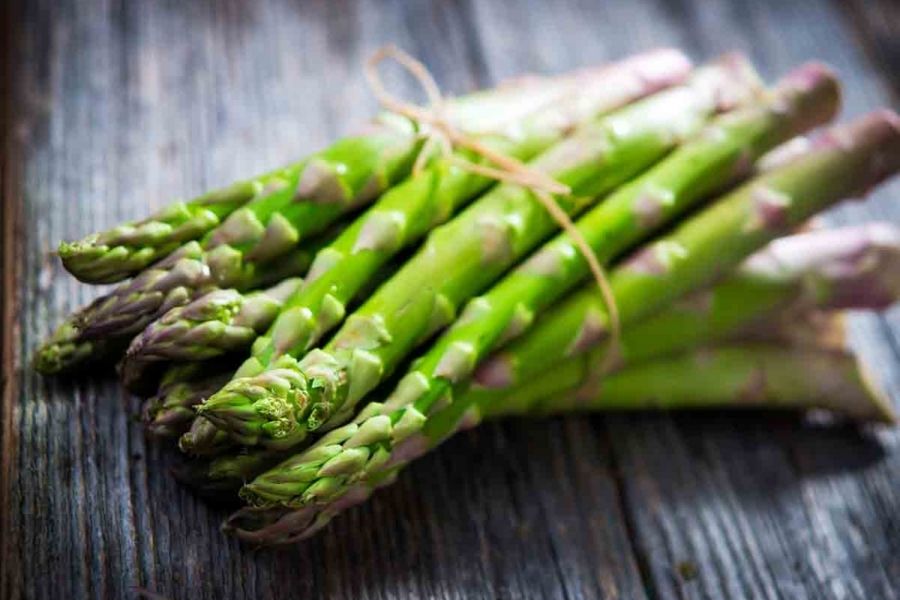What is Asparagus?
There are many precious gifts provided by nature in the lap of the Himalayas. The Himalayan region is rich in natural herbs and there will hardly be any herbs needed by humans that do not exist in the Himalayas. Asparagus is also one of the herbs found in the Himalayas and Himalayan regions.
Asparagus is one of the oldest herbs in Ayurveda and it is also found in most ancient texts written on Indian medicine.
Asparagus is a herb that helps in improving the female reproductive system. In Ayurveda, asparagus has been described as ‘effective in hundred diseases’.
Apart from it, having anti-stress and antioxidant properties, asparagus is considered a very effective herb in the treatment of stress and aging related problems.
The importance of this herb can be gauged from the fact that in Ayurveda, asparagus is called the ‘QUEEN OF HERBS’. The scientific name of asparagus is Asparagus racemosus.
This article reveals the medicinal properties and secrets of asparagus and how it can be beneficial for your health.
Types of Asparagus:
Before knowing the health benefits of asparagus, it is very important to know how many types of asparagus are there and which type can be most beneficial. It may be categorized into the following types —
1. Green Asparagus:
Green asparagus can be seen mainly in India. Both green and white asparagus are the same. However, due to their common differences, they are known by different names. According to a scientific research, green asparagus is green because it grows in the sun’s rays.
2. White Asparagus:
The second type of asparagus is white asparagus. Its color is white because it is grown inside the soil. It is also grown in shady places, so that the sunlight doesn’t reach the asparagus plants.
3. Purple Asparagus:
This is the most different kind of asparagus and its color is purple because of the high amount of antioxidants present in it. Cook the purple asparagus a little longer, so that its purple color remains.
Asparagus Nutritional Facts:
Per one cup (134 gram) of raw asparagus provides —
- Calories: 26.8 (112 kJ)
- Carbohydrates: 5.3 gram (2% DV)
- Fiber: 2.8 gram (11% DV)
- Protein: 2.9 gram (6% DV)
- Calcium: 32.2 mg (3% DV)
- Iron: 2.9 mg (16% DV)
- Magnesium: 18.8 mg (5% DV)
- Phosphorus: 69.7 mg (7% DV)
- Potassium: 271 mg (8% DV)
- Zinc: 0.7 mg (5% DV)
- Vitamin A: 1013 IU (20% DV)
- Vitamin C: 7.5 mg (13% DV)
- Vitamin E (Alpha Tocopherol): 1.5 mg (8% DV)
- Vitamin K: 55.7 mcg (70% DV)
- Thiamin: 0.2 mg (13% DV)
- Riboflavin: 0.2 mg (11% DV)
- Niacin: 1.3 mg (7% DV)
- Vitamin B: 60.1 mg (6% DV)
- Folate: 69.7 mcg (17% DV)
- Pantothenic Acid: 0.4 mg (4% DV)
- Choline: 21.4 mg
- Betaine: 0.8 mg
- Total Omega-3 fatty acids: 13.4 mg
- Total Omega-6 fatty acids: 53.6 mg
Health Benefits of Asparagus:
1. For Weight Loss:

If you’re trying to lose weight, a fiber-rich and low-calorie diet can be considered more beneficial.
It has very few calories, a cup of asparagus has only 20 calories. This means that you can eat a lot of asparagus without worrying about calories.
At the same time, it is a good source of fiber, which is considered to be the most effective nutrient in reducing obesity.
Asparagus also helps women in reducing their increased weight during the menstrual cycle.
2. In Pregnancy:
Asparagus is considered an excellent tonic for pregnant women. It nourishes the womb and prepares the organs of the pregnant woman for conceiving and also prevents miscarriage. It regulates the production of breast milk and enhances its quality.
Asparagus is enriched with folate (B vitamins), which can serve to replenish folate in the body of pregnant women. Folate is an essential nutrient, which is considered essential for the better health of the pregnant woman as well as the fetus in the womb.
Pregnant women should be fed asparagus because it contains a high amount of folate. Folate does not cause spinal and brain problems in babies in the womb. Therefore, women who are about to become pregnant should consume it exclusively.
Folate along with vitamin B12 and vitamin C helps in the breakdown, use and formation of proteins in the body. Folate assists in making red blood cells and produces DNA. But, here it is very important to keep in mind that its daily consumption should not exceed 5 mg.
3. Urinary Tract Infection (UTI):

If you’ve the problem of urinary tract infection, it can be reduced to a greater extent with the help of asparagus.
Asparagus is rich in vitamin A and according to a scientific research, asparagus has natural diuretic properties. Due to which, it can show positive effect in urinary tract infections (UTIs).
4. For Better Heart Health:
Due to its special properties, asparagus can also be used in heart health. According to a scientific research, the bioactive properties present inside asparagus can work to fight against heart disease.
5. Boosts Immunity:
Benefits of asparagus can also be seen here. Asparagus contains glutathione, which removes all the filthiness of the body and eliminates carcinogen and thus helps to increase immune power.
Asparagus also contains prebiotics and antioxidants, which helps to increase disease resistance and cures the problem of common colds. It also comes with vitamin B due to which it gives you energy power, so that your blood sugar level is also balanced and due to having more fiber, food is also digested properly.
According to a scientific study, vitamins and minerals found in asparagus can help to strengthen your immune system. Its vitamin A, vitamin C and vitamin E contents can show positive effects on infections associated with the body.
You can also use seasonal fruits and vegetables in your daily diet to maintain immunity. According to another scientific study, antioxidant-rich foods may play an vital role in strengthening the immunity system.
Some sources have shown that eating asparagus also strengthens muscles, but no evidence has yet been found.
6. In Cancer:
According to a scientific research, asparagus contains a compound called sulforaphane, which is rich in anti-cancer (chemo-preventive) properties. The presence of sulforaphane in asparagus may prove beneficial in cancer prevention.
Asparagus contains glutathione, which removes the filthiness of the body and ends carcinogens. Studies have shown that glutathione is very important for our health. It helps to boost immunity. By consuming asparagus, we can avoid bone cancer, breast cancer, lung cancer and colon cancer.
7. For Digestion:
It is very important to keep your digestion strong to stay healthy. The benefits of asparagus can be seen here. Asparagus is rich in fiber contents and fiber can help to keep digestion going smoothly.
8. Better Bone Health:
Due to low amount of vitamin k in the body, bones become weak and can also be broken. Asparagus is rich in vitamin K. One cup of asparagus fulfills half of your day’s vitamin K requirement.
Consumption of Vitamin K in plenty helps in absorption of calcium in bones. It also reduces the amount of calcium released in the urine, which makes bones healthy and does not cause osteoporosis. Vitamin K does not cause mineral deficiency in bones and bones remain strong.
Iron present in asparagus keeps bones and joints strong. Asparagus is a prebiotic that increases calcium absorption.
In addition, asparagus is a great source of calcium, which is the most important nutrient for healthy bones. Calcium acts as a defense against bone formation, bone growth, and bone problems, such as osteoporosis.
9. Cough and Fever:

Home-made asparagus can be used for home remedies for cough and fever. According to a scientific research, it was reported that using asparagus supplies vitamin C in the body. Vitamin C is rich in prophylactic properties, which can relieve problems like fever and colds.
10. Beneficial in Insomnia:
Insomnia is more common in women than men. If you’re troubled by insomnia, asparagus powder may help to prevent this problem to a greater extent.
11. As An Anti-Inflammatory:
If you’re troubled by the problem of inflammation, the properties of asparagus can be beneficial in it. According to a scientific study, it was observed that the use of asparagus may prove helpful in reducing inflammation.
According to an another study, it can help to remove excess fluid from the body due to being a natural diuretic. This can reduce the problem of inflammation and edema.
12. In Diabetes:
Asparagus has been used as an anti-diabetic for a long time. According to a scientific study, it was observed that asparagus may act to increase anti-hyperglycemic action, which may help prevent the risk of diabetes. It regulates blood glucose levels and provides relief in diabetes.
Asparagus has anti-inflammatory properties which help to cure diabetes as well as chronic disease. It contains chromium mineral due to which the blood sugar level in the body is balanced.
Studies have shown that taking asparagus keeps blood sugar levels balanced as well as increases the amount of insulin in the body and prevents the effects of diabetes.
13. Brain Health:
According to a scientific research, asparagus has a small amount of fat. Also, vitamin B6, omega-3 and riboflavin present in it can have positive effects on brain health.
In addition, a significant improvement was observed in the people with depression. According to another scientific study, intake of vitamin B6 can help in brain development and strengthen immune system.
14. For Eye Care:

Asparagus contains vitamin A in plenty, which can be beneficial for your eyes. According to a scientific research, vitamin A can improve vision.
According to an another scientific study, vitamin A may help in the production of pigments in the retina of the eye.
15. In Migraine:
The benefits of asparagus can be seen here. According to a scientific research, 400 mg daily intake of a vitamin called riboflavin present in asparagus can relieve migraine problems.
16. During Menstruation Periods:
In women, using asparagus during periods can provide relief from many health problems.
According to a scientific study, it was observed that vitamin K found in asparagus can help to relieve pain before and after menstruation.
17. In Tuberculosis (TB) Disease:
A research has been done on some such plants, whose benefits can be seen in TB disease, including asparagus. Also, according to a study, thiamine, vitamin B and vitamin C present in asparagus may help treat tuberculosis and reduce its risk.
18. In Case of High Intoxication:
According to a scientific study, it has been observed that asparagus prevents alcohol from damaging liver cells and may also reduce alcohol intoxication.
Here we want to make it clear that any type of intoxication is harmful to health. Therefore, such things should be avoided.
19. Reduce Blood Pressure:
More than 1.3 billion people around the world are troubled by the problem of high blood pressure (Hypertension). It is the main risk factor for heart diseases and stroke.
According to the study, high blood pressure is reduced by consuming more potassium and reducing the amount of salt in the food. Potassium reduces blood pressure in two ways — relaxing the blood vessels and removing more of the salt from the body through urine.
Asparagus is a good source of potassium, eating half a cup of asparagus can provide 6 percent of your daily potassium need. Studies have shown that asparagus also has blood pressure lowering properties. The researchers believe that this is because asparagus contains a substance that circulates blood vessels.
20. For Skin and Hair:

The secret of hair and skin beauty is hidden in the properties of asparagus. The nutrients present in asparagus can help in hair growth. According to a scientific study, iron, zinc, calcium, magnesium can play an active role in hair growth and these elements are found in asparagus.
In addition, vitamin C and vitamin E can protect the skin from the harmful ultraviolet rays of the sun.
21. Better Sexual Health:
Asparagus is a potent remedy for sexual disorders. It is a powerful sexual and rejuvenating tonic for reproductive organs of women. It helps in the treatment of almost all disorders of the reproductive organs. It stimulates estrogen production and also controls menstrual cycles.
In men, it increases sperms and improves sperm quality and mobility. It is also used in the treatment of infertility due to its effect in sexual health problems.
Asparagus helps to increase libido, balance hormones and cure sexual disorders in men and women. By taking it, it cures the physical and mental disorders of men along with curing diseases like anxiety. Its use also increases the quantity and motility of sperm along with libido.
22. In Leukorrhea:
Leucorrhoea is a very common disorder in women in which white and smelly discharge comes out of their vagina. Asparagus is a potent treatment of leucorrhoea.
By taking asparagus, kidney stones do not enter the urinary tract, which does not cause urinary tract infection. By taking asparagus, frequent urination occurs, it removes the filthiness of the body.
Eating asparagus smells peculiar and rotten in urine, but it is quite common. Because by eating asparagus, the ammonia and sulfur present in it removes the filthiness of the body, due to which it smells.
How to Choose Asparagus and Preserve It for A Long Time?

How To Choose Asparagus:
- Before buying asparagus, make sure that the color of its root part is naturally green.
- Chemical is also sprayed several times to keep asparagus fresh, so it is advisable to check its odor before purchasing it.
- Before selecting asparagus, see if it is withering.
How To Keep Asparagus Safe:
- To keep asparagus safe, it is important to keep it away from exposure to sunlight.
- Keep the asparagus in a slightly damp place, so that it does not wither.
- You can also wrap asparagus in a wet cloth to prevent it from withering.
How to Clean Asparagus?
It is also necessary to clean the asparagus properly before using it. So let’s dive into it —
- First of all, keep it properly in a big plate.
- Now cut the root part of it aside.
- Now remove its raised upper layer.
- Now wash it thoroughly with water, so that the soil and dust particles in it are cleaned.
- Do not wash it after cutting, otherwise its nutrients can flow with water.
How to Cook Asparagus?
Asparagus can be cooked in the following ways —
- You can fry it and cook it.
- Asparagus can also be cooked by boiling it with salt and water.
- Asparagus can also be cooked by placing it in the oven.
IMPORTANT NOTE: Do not boil asparagus too long, remove it immediately after cooking, so that its nutritious ingredients remain.
Apart from this, you can also include asparagus in your diet. Let’s know about a recipe made from asparagus.
Crunchy Asparagus:
Content:
- 8-10 chopped small pieces of asparagus
- One teaspoon of salt
- 6 to 7 cloves of garlic
- Two green chilies
Recipe:
- Take a pan.
- Add oil to it and let it warm slightly.
- Now add asparagus pieces and fry it in oil.
- Fry it till it turns brown in color.
- Now take it out and keep it in a plate.
- Now separately make garlic and chili paste and keep it in a bowl.
- Add salt to the paste of garlic and chili as per taste.
- Now serve the asparagus with this paste.
How to Use Asparagus?
You can use asparagus in different ways —
- You can consume asparagus in the form of fresh juice, so that the nutrients in it can be beneficial for you.
- You can boil asparagus and use it.
- You can also consume asparagus in the form of green salad.
- Asparagus can also be roasted and used.
- You can also use asparagus powder for evening soups.
Side Effects of Asparagus:
If asparagus is not being used properly, it can be harmful for your health. Also, if someone is taking any kind of medicine, then taking asparagus with them can cause many health side-effects. So, let us know what are the disadvantages of asparagus —
- Allergies: People who are allergic to onion or its type may also be allergic to asparagus.
- Kidney Stones: Asparagus contains purine. Purine in the body breaks down to form uric acid, which can increase the amount of purine in the body. People who have uric acid problems such as kidney stones or gout should not eat asparagus. Such people should not eat purine-rich food.
- Potassium is found inside asparagus and if consumed in excess, the high amount of potassium can cause hyperkalemia. It can also cause you difficulty in breathing and heartburn.
- Asparagus contains calcium in plenty. Excess of calcium in the blood can cause hypercalcemia, causing vomiting, tiredness as well as adverse effects on the brain.
- Of course, asparagus has less carbohydrate content. Nevertheless, taking it in excess can lead to obesity.
Take Away:
Asparagus has a wide range of health benefits. If used in limited quantities, it can cure many health problems. However, if you have any problem after using it, consult your doctor immediately.
If you have any question, please feel free to ask in the comment section below.
REFERENCES:
- How to Use Fruits and Vegetables to Help Manage Your Weight; Centers for Disease Control and Prevention; Healthy Weight, Nutrition, and Physical Activity.
- Can eating fruits and vegetables help people to manage their weight?; National Center for Chronic Disease Prevention and Health Promotion; Division of Nutrition and Physical Activity.
- Cancer: Forbidden cures?; Author: S. G. Damle; PMCID: PMC4319340. PMID: 25684902; doi: 10.4103/0976-237X.149282.
- Folate for pregnant women; Better Health.
- Antidiabetic activity of root tubers of Asparagus gonoclados Baker in streptozotocin induced diabetic rats; Author: Allagadda Rajasekhar, Kotha Peddanna, Nalluri Vedasree, Pasupuleti Munirajeswari, Nagoji Nagaraju, Kameswara Rao Badri, Appa Rao Chippada; PMID: 31226384. DOI: 10.1016/j.jep.2019.112027.
- Riboflavin; U.S. National Library of Medicine; Mediline Plus.
- Adjuvant effect of vitamin A on recurrent lower urinary tract infections; Author: Aygen Yilmaz, Elif Bahat, Gulsun Gulay Yilmaz, Alev Hasanoglu, Sema Akman and Ayfer Gur Guven; PMID: 17532826. DOI: 10.1111/j.1442-200X.2007.02370.x
- Effects of Vegetables on Cardiovascular Diseases and Related Mechanisms; Author: Guo-Yi Tang, Xiao Meng, Ya Li, Cai-Ning Zhao, Qing Liu, Hua-Bin Li; PMID: 28796173. PMCID: PMC5579650. DOI: 10.3390/nu9080857.
- You are What You Eat; Federal Occupational Health.
- Foods to Immune System; NCAA Foods to Promote Immunce Function Fact Sheet.
- Aging Partners; City of Linkcoln Nebraska.
- Calcium and Vitamin D: Important at Every Age; NIH Osteoporosis and Related Bone Diseases National Resource Center.
- Extra Dose of Vitamin C Based on a Daily Supplementation Shortens the Common Cold: A Meta-Analysis of 9 Randomized Controlled Trials; Author: Li Ran, Wenli Zhao, Jingxia Wang, Hongwu Wang, Ye Zhao, Yiider Tseng and Huaien Bu; PMCID: PMC6057395. PMID: 30069463. doi: 10.1155/2018/1837634.
- Insomnia; Office of Women’s Health.
- Strategies of Functional Foods Promote Sleep in Human Being; Author: Yawen Zeng, Jiazhen Yang, Juan Du, Xiaoying Pu, Xiaomen Yang, Shuming Yang and Tao Yang; PMID: 26005400. PMCID: PMC4440346. DOI: 10.2174/1574362410666150205165504
- Exploring California Asparagus: Taste Testing; Harvest of The Month. Network of A Healthy California.
- Vitamin A as an anti-inflammatory agent; Author: Ram Reifen; PMID: 12230799. DOI: 10.1079/PNS2002172. doi: 10.1079/PNS2002172.
- Diet, nutrition and the ageing brain: current evidence and new directions; Author: Katie Moore, Catherine Frances Hughes, Mary Ward and Leane Hoey; DOI: 10.1017/S0029665117004177.
- Vitamin B6; National Institute of Health.
- Aspagarous; DSHS.WA.GOV.
- Vitamin A; Mediline Plus. U.S. National Library of Medicine.
- Vitamin K Acupuncture Point Injection for Severe Primary Dysmenorrhea: An International Pilot Study; Author: Li Wang, Wenjie Zhao and Jin Yu; PMCID: PMC1480551. PMID: 15775872.
- Phytotherapeutic Information on Plants Used for the Treatment of Tuberculosis in Eastern Cape Province, South Africa; Author: I. O. Lawal, D. S. Grierson, and A. J. Afolayan; PMCID: PMC4016884. PMID: 24864158. doi: 10.1155/2014/735423.
- Role of Vitamins B, C, and D in the fight against tuberculosis; Author: Gaurav Tyagi, Pooja Singh, Mandira Varma-Basil and Mridula Bose; PMID: 29171444. DOI: 10.4103/ijmy.ijmy_80_17.
- Natural Products for the Prevention and Treatment of Hangover and Alcohol Use Disorder; Author: Fang Wang, Ya Li, Yu-Jie Zhang, Yue Zhou, Sha Li and Hua-Bin Li; PMCID: PMC6274469. PMID: 26751438. doi: 10.3390/molecules21010064.
- Nutrition of women with hair loss problem during the period of menopause; Author: Zuzanna Sabina Goluch-Koniuszy; PMCID: PMC4828511. PMID: 27095961. doi: 10.5114/pm.2016.58776.
- The Roles of Vitamin C in Skin Health; Author: Juliet M. Pullar, Anitra C. Carr, and Margreet C. M. Vissers; PMCID: PMC5579659. PMID: 28805671. doi: 10.3390/nu9080866.
- High potassium level; Mediline Plus. U.S. National Library of Medicine.
- Plant profile, phytochemistry and pharmacology of Asparagus racemosus (Shatavari): A review; Author: Shashi Alok, Sanjay Kumar Jain, Amita Verma, Mayank Kumar, Alok Mahor and Monika Sabharwal; PMCID: PMC4027291.
- Preservative effect of Asparagus racemosus: A novel additive for bioactive edible films for improved lipid oxidative stability and storage quality of meat products; Author: Sabahu Noor, Z F Bhat, Sunil Kumar and Reshan J Mudiyanselage; PMID: 29459296. DOI: 10.1016/j.meatsci.2018.02.001.
- Identification of antioxidant compound from Asparagus racemosus; Author: Nathathai Wiboonpun, Preecha Phuwapraisirisan, Santi Tip-pyang; PMID: 15478181. DOI: 10.1002/ptr.1526.
- Hypercalcemia; Mediline Plus. U.S. National Library of Medicine.
- Asparagus racemosus modulates the hypothalamic-pituitary-adrenal axis and brain monoaminergic systems in rats; Author: Sairam Krishnamurthy, Debapriya Garabadu and Nagannathahalli Ranga Reddy; PMID: 23485433. DOI: 10.1179/1476830513Y.0000000053.
- Ovicidal, larvicidal and adulticidal properties of Asparagus racemosus (Willd.) (Family: Asparagaceae) root extracts against filariasis (Culex quinquefasciatus), dengue (Aedes aegypti) and malaria (Anopheles stephensi) vector mosquitoes (Diptera: Culicida); Author: Marimuthu Govindarajan and Rajamohan Sivakumar; PMID: 24488078. DOI: 10.1007/s00436-014-3784-1.
- Impact of stress on female reproductive health disorders: Possible beneficial effects of shatavari (Asparagus racemosus); Author: Ajai K Pandey, Anumegha Gupta, Meenakshi Tiwari, Shilpa Prasad, Ashutosh N Pandey, Pramod K Yadav, Alka Sharma, Kankshi Sahu, Syed Asrafuzzaman, Doyil T Vengayil, Tulsidas G Shrivastav and Shail K Chaube; PMID: 29635127. DOI: 10.1016/j.biopha.2018.04.003.
- Clinical efficacy of Ayurveda treatment regimen on Subfertility with Poly Cystic Ovarian Syndrome (PCOS); Author: S. A. Dayani Siriwardene, L. P. A Karunathilaka, N. D. Kodituwakku and Y. A. U. D. Karunarathne; PMCID: PMC3215317. PMID: 22131680. doi: 10.4103/0974-8520.68203.
- In vitro anti-Malassezia activity and potential use in anti-dandruff formulation of Asparagus racemosus; Author: C Onlom, S Khanthawong, N Waranuch and K Ingkaninan; PMID: 24117781. DOI: 10.1111/ics.12098.
- Effect of Asparagus racemosus rhizome (Shatavari) on mammary gland and genital organs of pregnant rat; Author: S K Pandey, A Sahay, R S Pandey and Y B Tripathi; PMID: 16177978. DOI: 10.1002/ptr.1590.
- Antisecretory and antiulcer activity of Asparagus racemosus Willd. against indomethacin plus phyloric ligation-induced gastric ulcer in rats; Author: Maheep Bhatnagar and S S Sisodia; PMID: 17135157.
- Immunopotentiating significance of conventionally used plant adaptogens as modulators in biochemical and molecular signalling pathways in cell mediated processes; Author: Pardeep Kaur, Robin, Victor O Makanjuola, Rohit Arora, Balbir Singh and Saroj Arora; PMID: 28968926. DOI: 10.1016/j.biopha.2017.09.081.
- Immunomodulatory activity of Asparagus racemosus on systemic Th1/Th2 immunity: implications for immunoadjuvant potential; Author: Manish Gautam, Santanu Saha, Sarang Bani, A Kaul, Sanjay Mishra, Dada Patil, N K Satti, K A Suri, Sunil Gairola, K Suresh, Suresh Jadhav, G N Qazi and Bhushan Patwardhan; PMID: 19038322. DOI: 10.1016/j.jep.2008.10.028.
- Adjuvant effect of Asparagus racemosus Willd. derived saponins in antibody production, allergic response and pro-inflammatory cytokine modulation; Author: Nimisha Tiwari, Vivek Kumar Gupta, Pallavi Pandey, Dinesh Kumar Patel, Suchitra Banerjee, Mahendra Pandurang Darokar and Anirban Pal; PMID: 28024292. DOI: 10.1016/j.biopha.2016.11.087.
